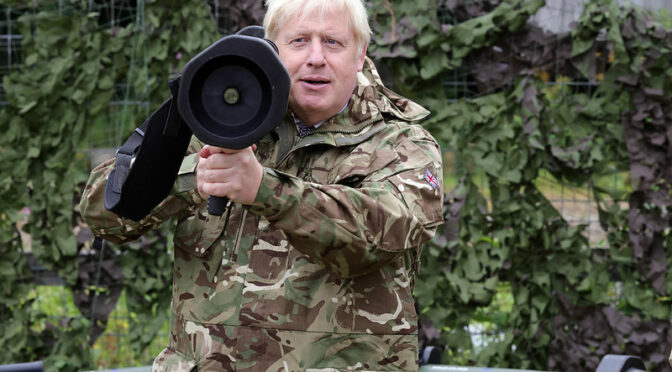Article published in The Daily Telegraph, 3 April 2025. © Richard Kemp
A report in the New York Times this week suggests British soldiers have been operating in Ukraine since the start of the war. It describes heavily-armed, plain-clothed British ‘commandos’ escorting a Ukrainian general from Kyiv into Poland for onward travel to an American base in Germany not long after Russia invaded. Assuming this is accurate, those soldiers are likely to have been SAS troops. Whenever British diplomats or intelligence officers are stationed in danger zones, it is standard practice for them to be protected by the SAS, usually out of uniform, and they may also be assigned other tasks if necessary, including the sort of thing described in this article.
The same article goes on to say that the British had placed small teams of officers in Ukraine after the invasion, in contrast to the Americans, who would not allow any of their servicemen to be deployed in the country until much later in the war. Even then, they were restricted to Kyiv for the most part.
The US approach characterised President Joe Biden’s extreme caution over Ukraine, whereas the apparently more free-ranging British presence, albeit no doubt discreet, reflected Boris Johnson’s bullishness. This would have had considerable advantages, enabling our military advisers to gain greater confidence among Ukrainian commanders and leading to an increased ability to influence the course of the war. It would also have given our forces improved insight into the situation on the ground, beneficial in assessing what military assistance was required and how best it could be configured.
Such knowledge was useful to British decision makers and to our allies alike, with whom information and guidance would have been shared. No doubt such activity played a significant part also in helping our politicians and diplomats to rally support among some of the more equivocal national leaders. When he was prime minister, Rishi Sunak only admitted to small numbers of British soldiers being in Ukraine for diplomatic protection, medical training and unspecified other tasks. But the Germans blew the lid off the deployment of our forces to assist in operations involving Storm Shadow cruise missiles donated to Ukraine to fight the Russians.
In April last year, the Kremlin-controlled news agency RT released an intercepted phone conversation between two Luftwaffe generals discussing the British presence on the ground in Ukraine for Storm Shadow mission planning. Around the same time Chancellor Olaf Scholz publicly revealed much the same thing. He said this to justify his refusal to allow German boots on the ground which he believed would be necessary for supplying Ukraine with the longer-range Taurus missiles that Kyiv had long sought and never got. Scholz feared that deploying Taurus risked making Berlin ‘a participant in the war’.
That same sort of timidity, although mainly coming out of Washington, permeates the New York Times article. It shows senior US military officers doing the best they knew how to help Ukraine defeat the Russians from their remote headquarters in Germany, but often frustrated in their efforts by Biden’s fear of Putin’s sabre-rattling. That resulted in what turned out to be fatal heel-dragging in supplying vitally needed munitions like long-range missiles, tanks and combat planes.
Then, when eventually they were reluctantly sent, there was a refusal to allow their use on Russian territory where they could have been applied to greatest effect. Biden’s anxiety over the threat of escalation is reflected in the words of one of his senior officials who claimed that the American message to the Russians was: ‘This war should be fought inside Ukraine.’ What an indictment! A former Ukrainian military intelligence chief, Lieutenant General Valeriy Kondratiuk, summed it up perfectly: ‘We are allies, but we have different goals. We protect our country, and you protect your phantom fears from the Cold War.’
British leaders shared such fears but perhaps not as much as Biden. We were right to stick our neck out by sending troops into Ukraine to do what needed to be done, albeit in a very limited way. We will need to be much bolder, and to build up our own withered defences, if we are to play a role in deterring Vladimir Putin’s future ambitions. And we will need allies who are not so terrified that, like Scholz, they live in perpetual dread of being seen to participate in a war to defend their friends from aggression.
Image: Number 10/Flickr

